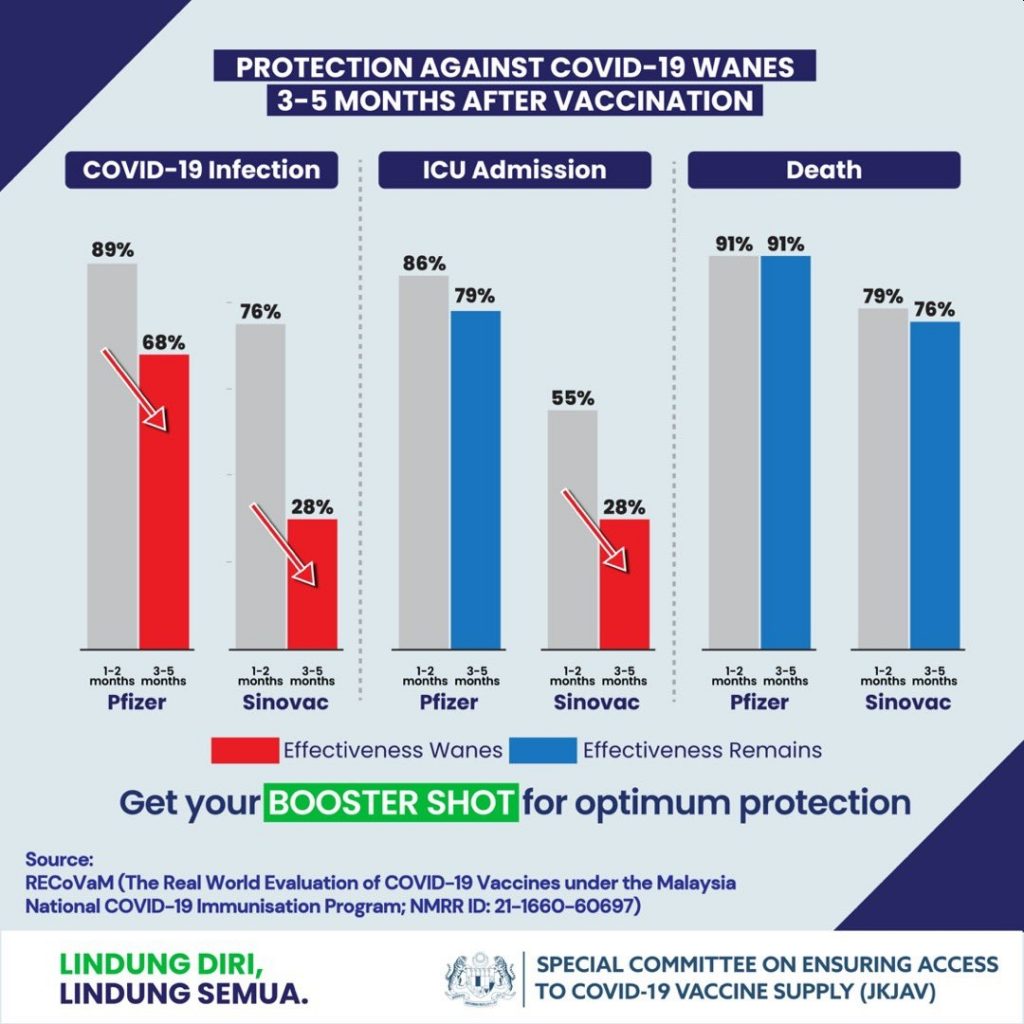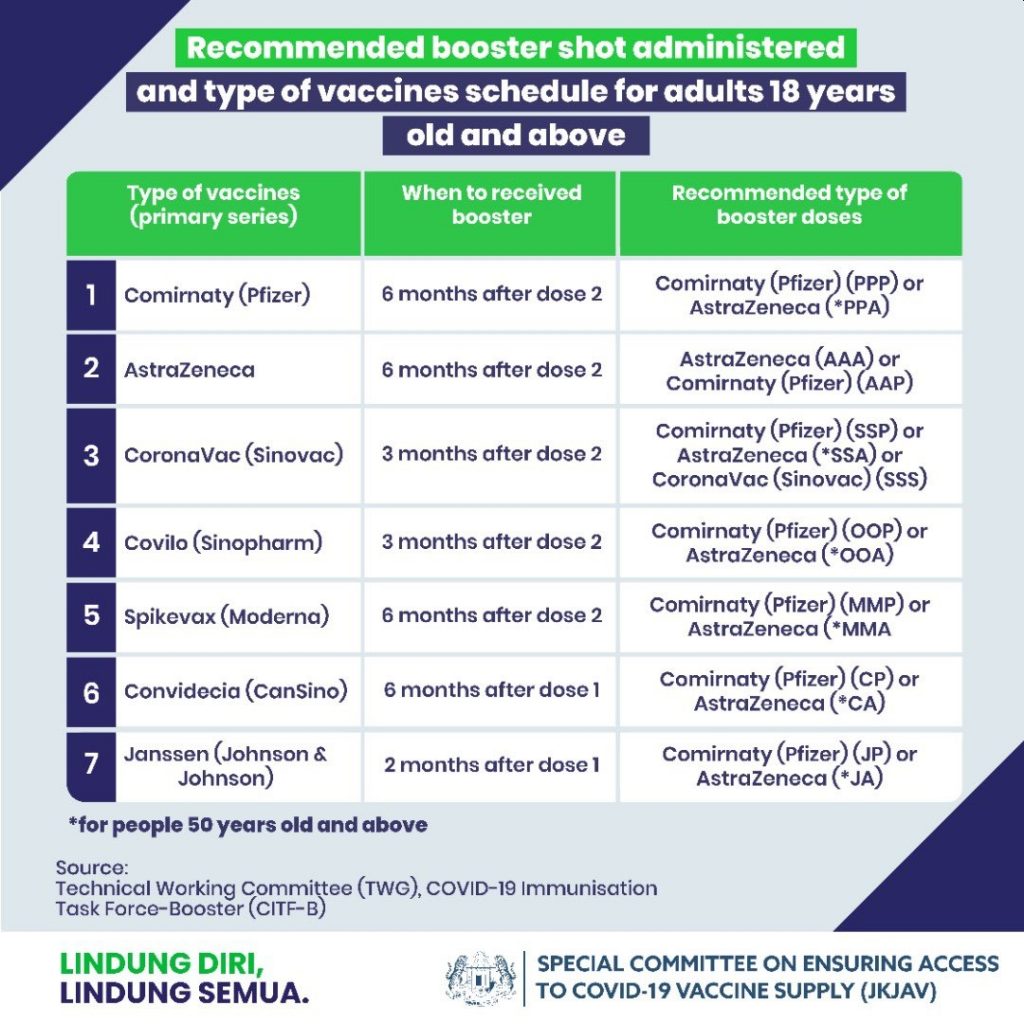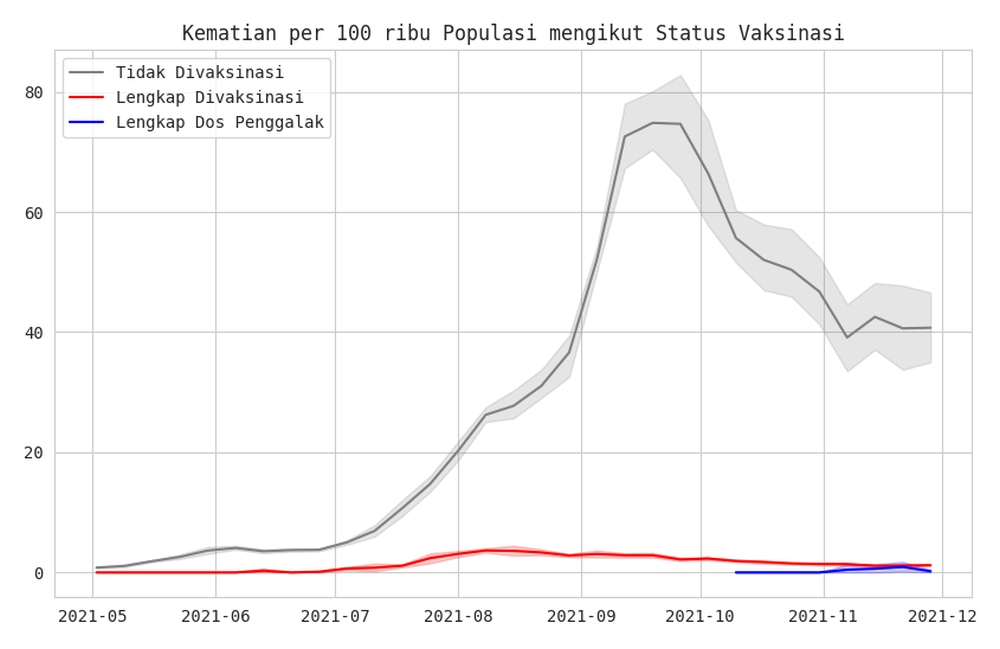We are back with a special episode of the COVID-19 vaccine update. This time we are covering the new Omicron variant and the ongoing COVID-19 vaccine booster programme in Malaysia.
Why are COVID-19 boosters required?

As shared recently by the RECoVAM (The Real World Evaluation of COVID-19 vaccines) study conducted in Malaysia, the protection levels against COVID-19 infection and ICU admission wane after 3-5 months. Hence, a booster shot is recommended to ensure optimal levels of protection. Protection against COVID-19 infection drops from 89% to 68% for Pfizer and 76% to 28% for Sinovac after 3-5 months. For protection against ICU admission, Pfizer still maintains its effectiveness at 79% While Sinovac drops to 28% after 3-5 months. Both Pfizer and Sinovac vaccines are still highly effective against preventing COVID-19 death at 91% and 76% respectively.
The booster shot appointment is sent out automatically via MySejahtera or SMS. You can check if you’ve received an appointment by going to MySejahtera’s home screen, tap on COVID-19 vaccination and then tap on your name.
Which COVID-19 vaccine booster should you get?

The Technical Working Group of the COVID-19 Immunisation Task Force has revealed the full schedule for recommended booster shots based on the type of vaccine you’ve received in the primary vaccination series.
If you’ve been fully vaccinated with Pfizer, it is recommended that you get the booster 6 months after the second dose. Pfizer is the recommended booster while AstraZeneca is permitted for people aged 50 years old and above.
For individuals who have gotten AstraZeneca, it is also recommended to get the booster 6 months after the second dose. AstraZeneca is the recommended booster shot and Pfizer is also permitted as an alternative.
For those who have gotten Sinovac, it is recommended that you get the booster shot 3 months after the second dose. The recommended option is Pfizer due to its higher efficacy rate. For those who are allergic, you may get AstraZeneca or Sinovac instead.
For all other vaccine types, the booster interval varies from as little as 2 months for Johnson and Johnson, to 6 months for CanSino and Moderna. The recommended booster is also Pfizer, or AstraZeneca as an alternative for individuals aged 50 years old and above.
Unvaccinated has 35X higher risk of COVID-19 death than the vaccinated

Dr Mahesh Appannan, the head of data at the Crisis Preparedness and Response Centre (CPRC) at the Ministry of Health has revealed that the risk of COVID-19 death is 35X higher among the unvaccinated versus those who are fully vaccinated.
Satu peringatan susulan pengumuman varian baru: Jika masih belum divaksinasi, pergilah dapatkan vaksin dengan segera.
— Mahesh Appannan (@maheshappannan) December 5, 2021
Kadar kematian dalam kalangan yg langsung tidak divaksinasi hampir 35x lebih tinggi berbanding lengkap divaksinasi.
Pesanlah kepada yang menolak vaksin. pic.twitter.com/sJzCEoMrHK
At the moment, less than 1.5% of the adult population have not yet gotten vaccinated against COVID-19, but in the last 2 weeks, 36% of new COVID-19 deaths were unvaccinated.
Omicron in Malaysia
On 3rd December, Malaysia reported its first Omicron case involving a 19-year-old foreign student that’s studying in Perak. But many were not aware that this was actually an old case and it isn’t a new import case after Malaysia implemented more travel restrictions.
As shared by Khairy, the Omicron case was discovered after genomic tests were conducted on positive cases that were detected at KLIA between 11th to 28th November 2021. The student arrived from South Africa via Singapore on the 19th of November, which is before the first Omicron case was reported.
Like any positive COVID-19 case, the student and her close contacts have to undergo quarantine. She has completed her 10-day quarantine on 29 November and she was asymptomatic.
Terkini dari Negeri Perak. Kesemua 8 sampel ujian RT PCR hari ini adalah NEGATIVE iaitu kes index Omicron pertama dlm negara (Afrika Selatan) & 7 kes kontak rapat iaitu pemandu, pekerja universiti, 3 rakan pelajar universiti (2 Ghana & 1 India) & 2 rakan sebilik. Alhamdulilah
— Noor Hisham Abdullah (@DGHisham) December 3, 2021
The Ministry of Health had called the student and her 7 close contacts back for another PCR test on the 3rd of December and the results have returned negative. So far this is the only Omicron case that has been reported in Malaysia and how fast we can detect, is dependent on our genomic sequencing testing capacity.







